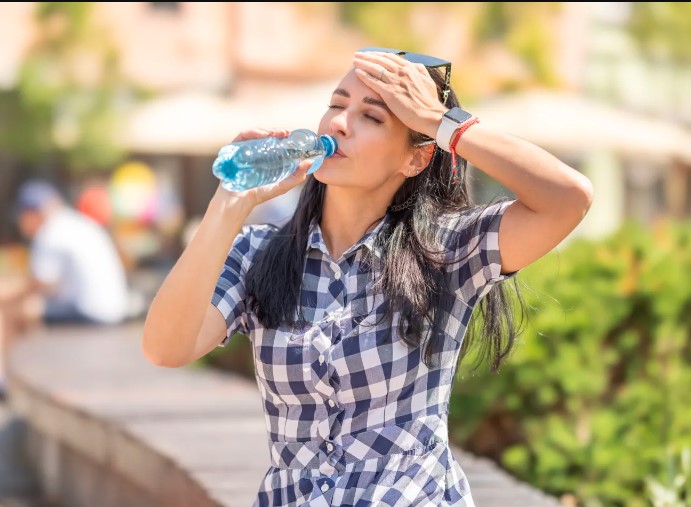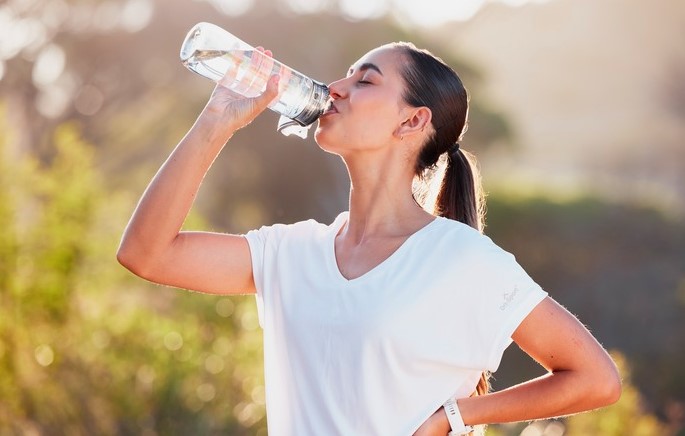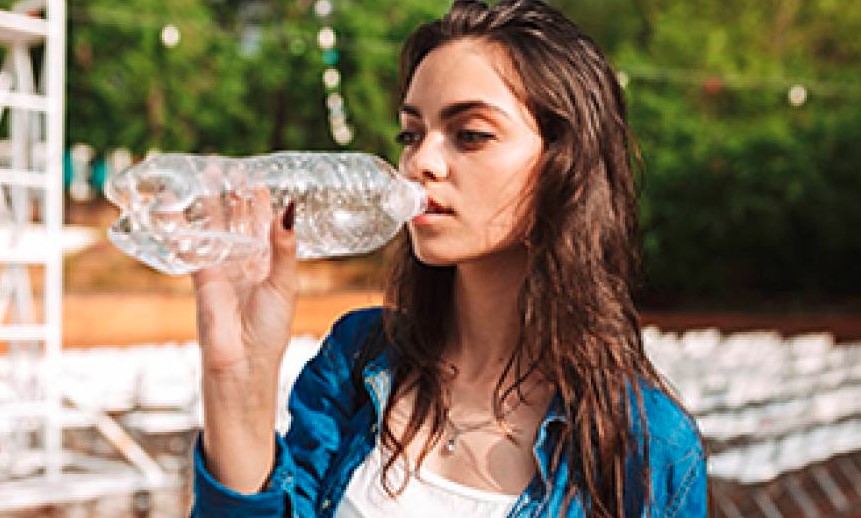
Introduction
Staying hydrated is essential for maintaining overall health and well-being. Water makes up about 60% of our body, and it plays a crucial role in regulating body temperature, supporting digestion, transporting nutrients, and flushing out toxins. Yet, many people struggle to drink enough water each day. In this article, we’ll explore the importance of hydration, tips for increasing your water intake, and actionable strategies to make hydration a daily habit.
Why Staying Hydrated is Important
Water is necessary for virtually every bodily function. Hydration affects nearly every aspect of your health, from aiding digestion to keeping your skin healthy. Here are some key benefits of staying hydrated:
- Improved Physical Performance: During physical activity, your body loses water through sweat. Proper hydration can improve endurance, reduce fatigue, and help you perform better.
- Cognitive Function: Dehydration, even mild, can affect mood, memory, and concentration. Drinking enough water ensures your brain functions properly.
- Energy Levels: Water helps deliver oxygen throughout your body, boost your energy levels, and reduce the chances of feeling sluggish.
- Skin Health: Hydration is key to maintaining healthy, glowing skin. Water keeps your skin moisturized and prevents dryness.
- Joint and Muscle Health: Water helps lubricate joints and muscles, reducing the risk of cramps and injuries.
For more information on the benefits of hydration, check out the article by the Mayo Clinic.
How Much Water Should You Drink?
The general recommendation is to drink about 8 cups (64 ounces) of water a day, but this can vary based on factors such as age, weight, physical activity, and climate. Here’s a quick breakdown:
- Women: Should aim for at least 2.7 liters (91 ounces) of water per day from all beverages and food.
- Men: Should aim for 3.7 liters (125 ounces) of water per day from all beverages and food.
Keep in mind that if you live in a hot climate or exercise frequently, you may need more water to stay hydrated.
For a personalized water intake recommendation, use the Hydration Calculator from Harvard Health.
Tips for Drinking Enough Water
- Carry a Water Bottle Everywhere
One of the simplest ways to increase your water intake is to carry a reusable water bottle wherever you go. This makes it easy to sip throughout the day, and you’ll always have water on hand, whether you’re at work, at the gym, or out running errands. - Set Reminders
In our busy lives, it’s easy to forget to drink water. Set reminders on your phone or computer to take a sip every hour. There are also several apps designed specifically to help you track your water intake, such as Hydro Coach or WaterMinder. - Flavor Your Water
If you find plain water boring, try adding natural flavorings like lemon, cucumber, or mint to your water. This not only makes the water more enjoyable but can also encourage you to drink more. You can also try sparkling water or herbal teas for some variety. - Drink Water Before Every Meal
Drinking a glass of water before each meal can help you stay hydrated and even aid in weight management by making you feel full and preventing overeating. This small habit can make a big difference in your overall water intake. - Eat Hydrating Foods
About 20% of your daily water intake comes from food. Foods like watermelon, cucumbers, oranges, and strawberries have a high water content and can contribute to your hydration. Incorporate these hydrating foods into your meals and snacks to boost your water intake effortlessly. - Track Your Water Intake
Keeping track of how much water you drink can be motivating. Use a water-tracking app or simply keep a tally in a notebook. This will help you see how much water you’re consuming and ensure you’re meeting your daily goals. - Drink a Glass After Every Bathroom Break
A great way to remind yourself to drink more water is to take a sip after every bathroom visit. This creates a natural rhythm and can help you stay on top of your hydration throughout the day. - Replace Sugary Drinks with Water
Sugary drinks like soda, energy drinks, and even some juices can be dehydrating. Replace these with water to not only boost your hydration but also reduce your sugar intake. Drinking water instead of sugary drinks can also help in weight loss and improve your overall health.
For additional guidance on how to cut down on sugary drinks, visit the American Heart Association.

Signs of Dehydration
Dehydration occurs when you lose more water than you take in. Some common signs of dehydration include:
- Thirst
- Dry mouth
- Dark yellow urine
- Fatigue or dizziness
- Dry skin
- Headaches
In more severe cases, dehydration can lead to confusion, rapid heartbeat, and fainting. It’s important to listen to your body and take action when you notice these symptoms.
Learn more about the signs of dehydration from WebMD.
Hydration and Exercise
Exercise increases the body’s need for water. If you’re engaging in physical activity, it’s important to stay hydrated before, during, and after your workout. Here are some hydration tips for exercise:
- Drink Water Before Aim to drink about 16-20 ounces of water 2 hours before your workout.
- Sip During Exercise: For workouts lasting under an hour, drink water every 15 minutes. For longer sessions, you might need an electrolyte-replacement drink.
- Rehydrate After: Drink at least 20-24 ounces of water for every pound lost during your workout.
For more tips on how to stay hydrated during workouts, check out this guide from the American College of Sports Medicine.
Hydration in Different Climates
Your hydration needs may increase based on your environment. In hot climates, your body loses water faster through sweat, requiring you to drink more to stay hydrated. Similarly, in high-altitude locations, your body uses more fluids due to the lower humidity and increased breathing rate. Always be mindful of your surroundings and adjust your water intake accordingly.
For more advice on staying hydrated in various climates, visit CDC’s Water and Hydration Guidelines.

FAQs
1. How much water should I drink daily?
The general recommendation is 8 cups (64 ounces) per day, but your needs may vary based on age, weight, activity level, and climate. Women typically need 2.7 liters (91 ounces), while men require 3.7 liters (125 ounces) from both beverages and food.
2. What are the signs of dehydration?
Common signs include thirst, dry mouth, dark yellow urine, fatigue, headaches, and dizziness. Severe dehydration can lead to confusion and fainting.
3. Can I hydrate through food?
Yes, about 20% of your daily water intake comes from food. Fruits and vegetables like watermelon, cucumber, and oranges have high water content and contribute to hydration.
4. How can I make drinking water a habit?
Carry a water bottle, set reminders, flavor your water with fruits, and drink a glass before every meal or after bathroom breaks to make it easier to stay hydrated.
5. Is drinking too much water harmful?
Yes, excessive water intake can lead to water intoxication (hyponatremia), where your body’s sodium levels drop dangerously low. It’s essential to drink water in moderation based on your activity level and environment.
6. Does coffee or tea count toward hydration?
Yes, beverages like coffee and tea contribute to your daily fluid intake. However, they may have mild diuretic effects, so it’s still important to drink water alongside them.
7. How can I stay hydrated during exercise?
Drink 16-20 ounces of water two hours before exercise, sip water every 15 minutes during workouts, and rehydrate with 20-24 ounces for every pound lost afterward.
8. Can I drink water instead of sugary drinks?
Yes, replacing sugary drinks like soda with water can boost hydration and improve overall health by reducing sugar intake and calorie consumption.
9. Should I drink more water in hot weather?
Yes, in hot climates or during intense physical activity, you lose more water through sweat and need to drink more to avoid dehydration.
Conclusion
Staying hydrated is essential for your overall health. By making small adjustments to your daily routine, such as carrying a water bottle, setting reminders, and incorporating hydrating foods, you can easily increase your water intake. Remember, hydration isn’t just about quantity – it’s about consistency throughout the day. Start implementing these tips today to improve your health and well-being.
For more in-depth hydration tips, explore Everyday Health’s hydration guide.
Must Read
How Can We Maintain Our Health from Home in 2024
Well Health Ayurvedic Health Tips 2024
